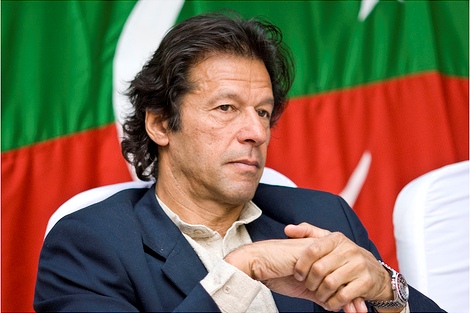The former high-ranking Pakistani politician, Imran Khan, who served as the country’s Prime Minister from August 2018 to March 2022, has pleaded not guilty to corruption charges a day after his arrest. The arrest had triggered nationwide protests.
According to the police, nationwide protests have resulted in the death of eight individuals and the arrest of around 1,000 people. In response to crowds attacking its properties, the army has been deployed in certain areas and issued a strict warning.
The recent arrest of former Prime Minister Imran Khan has dramatically increased tensions between him and the military, occurring during a time of economic crisis. If convicted of the corruption charges, the former cricket star turned prime minister, who served from 2018 to 2022, could be disqualified from running for office, potentially for life. National elections are scheduled later this year.
The 70-year-old former leader was forcefully taken out of the courtroom on Tuesday by numerous security officers, as captured in a dramatic video. He was then transported to a police guesthouse that is being used as a detention center and courtroom, which has high levels of security.
On Wednesday, the former leader was charged by the Election Commission for the unlawful sale of state gifts during his term as the Prime Minister. However, he has denied the accusations and claims that he followed all legal procedures.
This was the first instance of many cases in which he has been formally charged. Over the past few months, the former leader had managed to avoid arrest, often resorting to violent clashes between his supporters and the police.
However, on Tuesday, he was apprehended based on a new warrant for another corruption case related to the alleged transfer of land for Al-Qadir University near Islamabad. In this case, the judge ordered Mr. Khan to be held in custody for eight days.
One of his lawyers, Sher Afzal Marwat, has stated that his client is doing well and has urged supporters not to lose hope, adding that Mr. Khan has advised them to stand firm for the rule of law.

The Pakistan Tehreek-e-Insaf (PTI) party has announced that it plans to challenge the legality of the arrest in court. This move by the country’s anti-corruption body has led to violent protests nationwide.
To maintain order, the government has called in the military in various regions of the country, including Khyber Pakhtunkhwa, Punjab, Balochistan, and Islamabad.
In a startling incident on Tuesday evening, supporters of Mr. Khan ransacked the residence of the corps commander in Lahore. They destroyed chandeliers and stole items such as peacocks, which they claimed were bought with “citizen’s money”.
The army of Pakistan has referred to 9 May as a “dark day” and has warned demonstrators that any further attack on state properties would lead to an “extreme reaction”.
In an attempt to block access to the compound where Imran Khan was scheduled to appear before a judge, police in Islamabad used shipping containers to obstruct the roads.
Demonstrators started assembling after noon, with some waving PTI flags or wearing masks of Imran Khan’s face. After a brief period, tear gas canisters were fired into the crowd, and the protesters tried to strike them with their sticks. There were no reports of arrests during the 90 minutes that the BBC was present.
As per a man, who was wearing a surgical mask, holding stones and a stick, and talking to the BBC, they arrived to stage a peaceful protest, but the police were firing tear gas shells at them.
He continued, “We will continue this protest until our last breath, or until Imran is released. Otherwise, we will shut down the entire country.”
Mr Khan was removed from his position last April, just before completing four years of his term as prime minister.
In November, while campaigning among crowds in the city of Wazirabad, he was shot in the leg. He accused a senior intelligence official of carrying out the attack, but the military denied the allegation. A day prior to his arrest, the military cautioned Mr Khan not to repeat the accusation.
According to Mr Khan’s party, he is facing more than a hundred politically motivated court cases, and his supporters believe that the current government wants to prevent him from participating in the upcoming general elections scheduled for October.
Dr Shireen Mazari, the former Minister for Human Rights in Mr Khan’s PTI government, said that his detention was similar to state abduction and even the military should not abuse the sanctity of the court like this. She added that people in Pakistan were furious about his treatment and broader economic issues. Nevertheless, Islamabad’s High Court has stated that the arrest was lawful.
Minister of Planning Ahsan Iqbal emphasized in a press conference on Wednesday that if Mr Imran Khan is innocent, he can contest the election, but if found guilty of corruption, he will face the consequences of his actions. Police have also detained supporters of Mr. Khan’s party, including its secretary-general, Asad Umar.
Restrictions on mobile internet services continue to be in place throughout Pakistan, as per instructions from the interior ministry. Schools remain closed and some highways have been blocked, with low traffic volumes in major cities.
Mr Khan’s election victory in 2018 was allegedly facilitated by the military, according to many analysts. However, with the country experiencing a worsening economic crisis, the military’s support for Mr Khan is said to have waned.
Since his time in opposition, Mr Khan has become a vocal critic of the military, which is a significant behind-the-scenes power player in Pakistan, a nuclear-armed nation.
SOURCE: BBC AND NEWS AGENCIES


